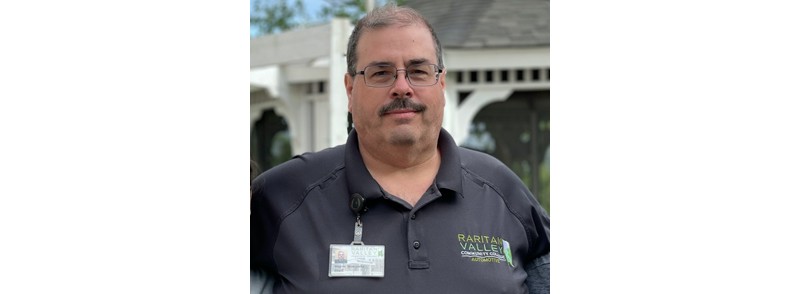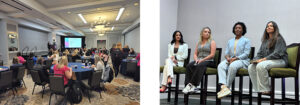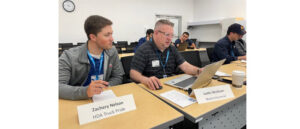Moschella followed his father’s footsteps into the repair industry and says he has held a wrench in his hand ever since he could hold one
Leesburg, Va.—The National Institute for Automotive Service Excellence occasionally profiles one of its ASE Certified professionals. Interested in sharing your story with ASE? Send an email with your contact information to marketing@ase.com or click here.
Wayne Moschella
Automotive Technology Lab Coordinator
Raritan Valley Community College, Branchburg Township, N.J.
Tell us about yourself. What made you decide to become a service professional?
I always knew I wanted to fix cars — and anything mechanical — since I was very young. I have had a wrench in my hand since I could hold one. My Dad was in the trade and I was quite lucky to have a very active driveway and garage at my house when I was a child. It was very influential. When I became eligible to work at 15 years old, I found a job at a small auto repair shop, and I have never done any other type of work since.
Where/How did you get your training to get the knowledge you have today?
I am mostly self taught. I went to and graduated from a vocational high school auto shop, but that was during the 1980s, when vocational training was being curtailed. In my 20s, I became capable of researching and finding information on what I needed to learn about new equipment I encountered. This included Heavy Truck, Construction Equipment, and Diesel/ Commercial Marine applications. I was lucky to have and to find the resources needed to answer my questions. It wasn’t until years later, when official training became available to me, I took advantage of that as much as I could.
How long have you worked as a service professional?
I consider myself to have become a service professional when I earned my certificate to conduct New York State vehicle Inspections. I was 19 at that point, and I still have that license. So that would be 36 years.
What role has being ASE Certified played in your journey?
I didn’t need any ASE certifications for my previous job as an auto mechanic for the City of New York, but as I was leaving that job, I felt compelled to quantify my journey, so I began taking the A series tests, one per month and I passed all eight the first time. It was very gratifying to see a result of my decades of hard work. At about the same time, I had considered teaching the trade, and when I saw the requirements of needing to be an A Master, I then realized the other reason for the investment of time and effort. My current job at RVCC requires me to maintain my ASE Certifications.
What ASE Certifications do you currently hold?
I currently hold A1, A2, A3, A4, A5, A6, A7, A8, L1, T4. T8.
What are some of the top challenges you do/did face as a service professional and how do/did you overcome them?
My toughest challenges have always been to find the time to study and carry out the effort to apply what you’ve learned. I still struggle with these things, but when everything clicks and the repaired vehicle rolls out the door, it’s very rewarding. To overcome some problems, sometimes you just need to walk away for a bit. This sometimes brings a new perspective of the task at hand.
Do you have any advice for today’s students who might be thinking about entering the automotive industry or becoming a service professional?
DO IT!
There are so many aspects and types of jobs available in the transportation repair industry, and I try to expose my students to as many as I can — from passenger cars to medium and heavy trucks, vocational trucks, careers in the automotive repair shop and service department, to fleet maintenance, to specialty component repair, to construction equipment repair. For the student who feels that the repair industry isn’t a good fit, I encourage them to checkout automotive parts and material supply.
What do you like most about being an automotive service professional?
I always wanted to fix something that wasn’t working correctly. In the late ’70s all of the adults around me couldn’t set their new fangled LED digital watches, and they all came to me once they found out I could help them. This extended to my career as an automotive service professional because I was helping people and I felt good about that, especially if someone was in a situation, like if they were stranded, or if the car came in on a tow truck and then left running as intended.








Comments are closed.